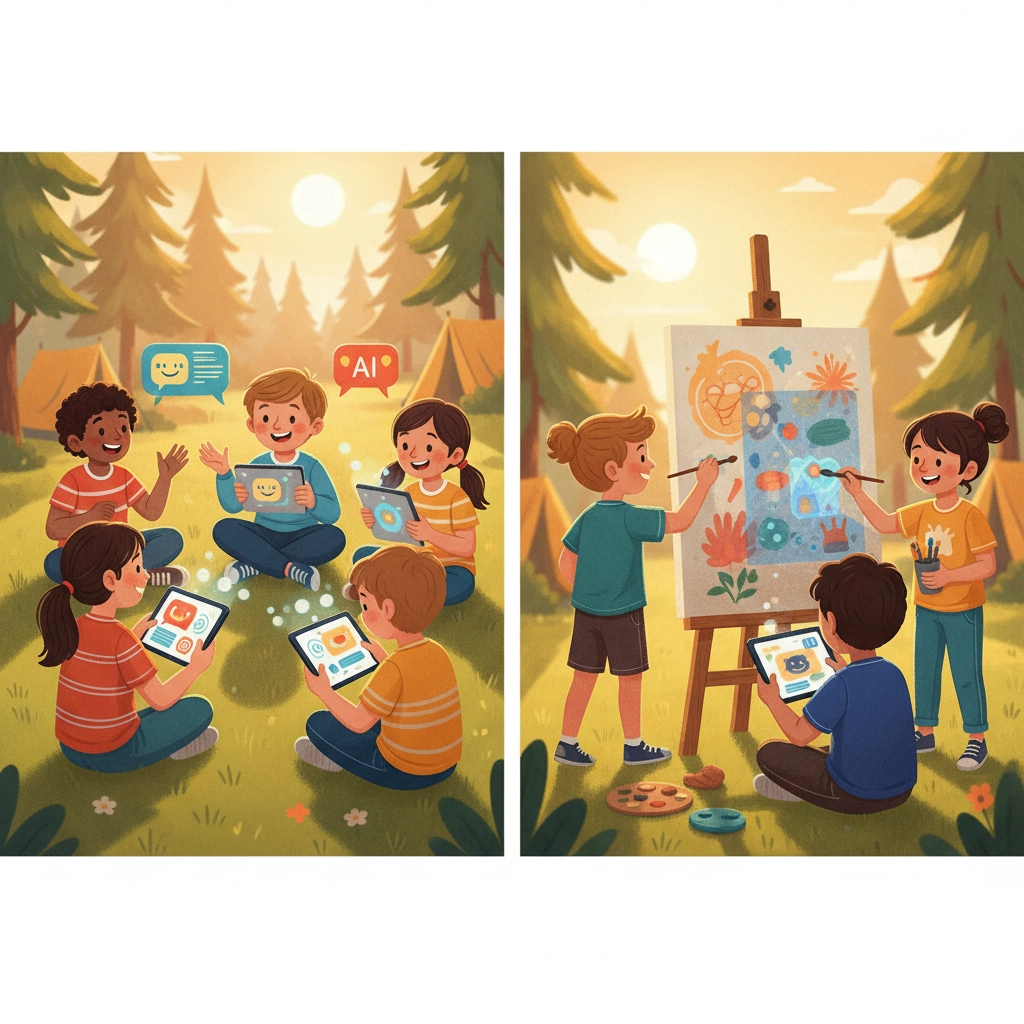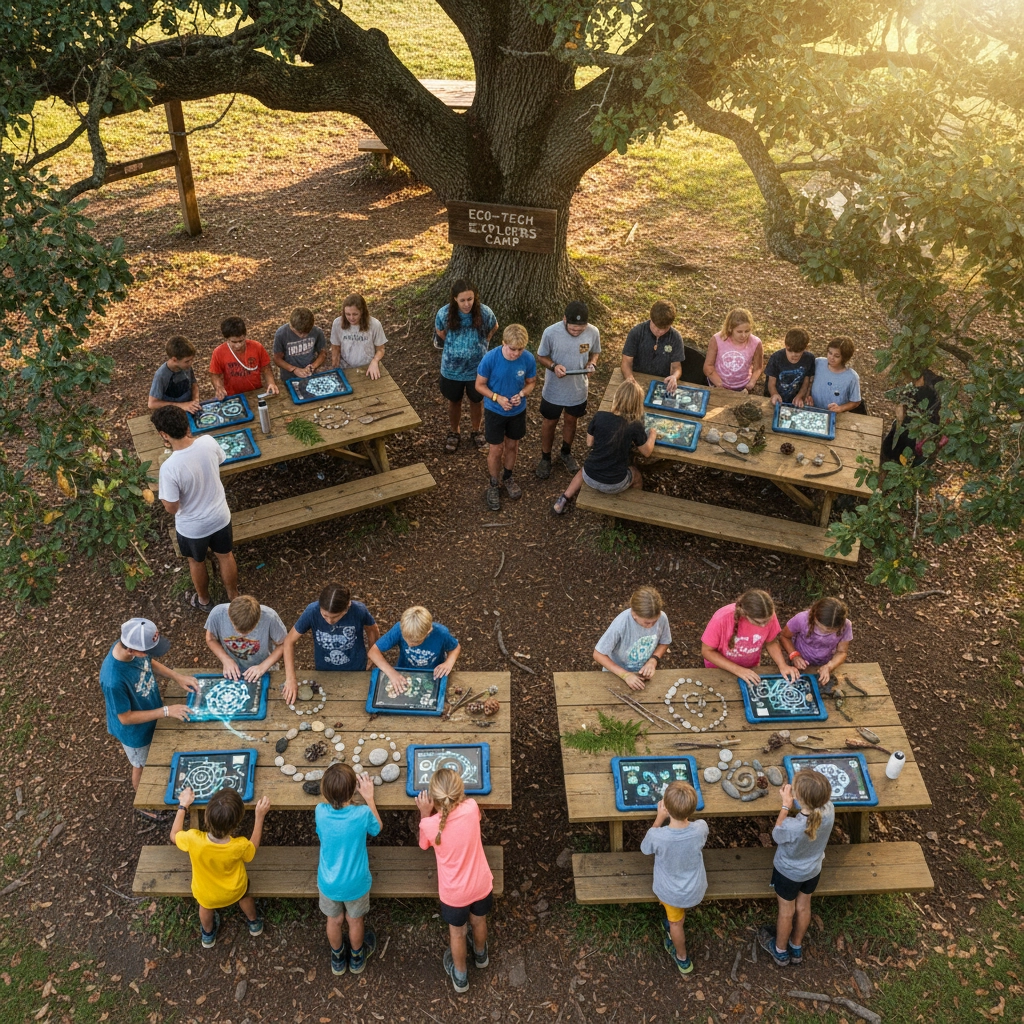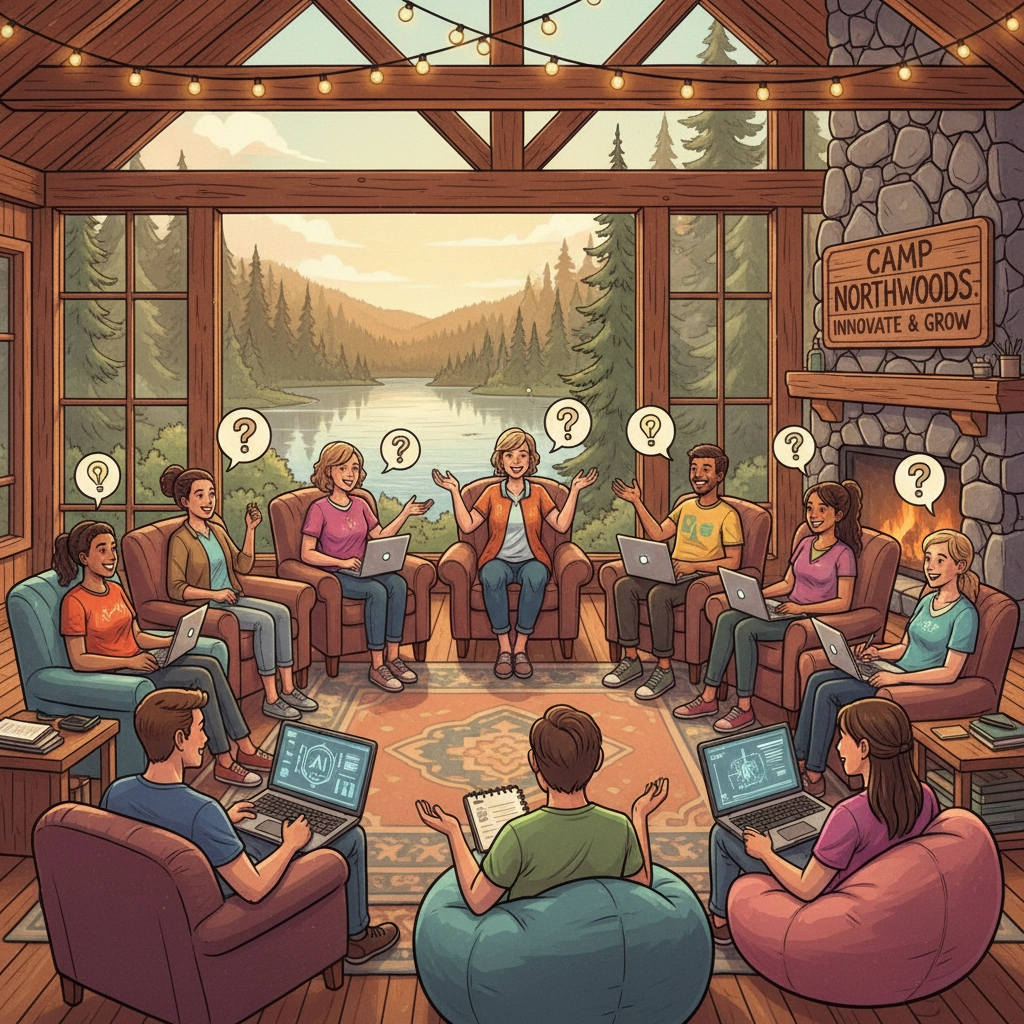The Summer Camp Daily Brief – October 11, 2025
- Matthew Kaufman

- Oct 11
- 5 min read
Topics: AI & automation | Gen Z & Alpha | staff training | child development
What's Happening Right Now
The world of youth development is shifting faster than ever, and summer camps aren't immune to these changes. Let's dive into what's happening this week that directly impacts how we think about camp programming, staff training, and engaging today's kids.
A new Pew Research Center study shows many parents believe they're not doing a great job managing screen time: even while screens become more integrated into everyday life. Sound familiar? You're probably seeing this tension play out with your camp families too.
Meanwhile, The Guardian reports that 41% of business leaders say AI is allowing them to reduce headcount, especially among entry-level roles. Computing magazine echoes these findings, painting a picture of a rapidly changing job market.
In schools, Education Week found that 85% of teachers and 86% of students used AI tools in the 2024–25 school year. But here's the catch: this surge comes with growing risks: data leaks, plagiarism, and misuse.
Perhaps most intriguingly, researchers are studying how kids ages 5–12 actually think about generative AI tools. What they're discovering about children's assumptions around AI "thinking" might surprise you.

Why This Matters to Your Camp
You might be wondering: "What do business layoffs and school AI use have to do with my summer camp?" Fair question. Here are a few ways these trends connect directly to your daily operations:
Staff Development Is More Critical Than Ever If entry-level jobs are shrinking, your camp may feel greater pressure to support younger staff who are just entering the workforce. That makes staff development not just nice-to-have, but essential for your team's future success.
Camper Expectations Are Evolving As schools integrate AI, campers arrive with new expectations. They'll assume AI is "part of learning." If your camp resists or ignores this reality, you risk losing engagement with the very kids you're trying to reach.
Mental Models Matter Kids' understanding of AI: what they think the tool is actually doing: shapes how they use it. If they believe AI "thinks like a human" or "knows everything," they may misuse it or place too much trust in it. Camps that help them build more accurate models give them a huge advantage in digital literacy.
The Gen Z & Alpha Conversation
Let's talk about your counselors and campers for a minute.
Gen Z counselors (older teens and early workforce entrants) are watching labor trends closely. They're savvy to narratives like "AI is killing jobs." Some may lean toward roles where human skills are harder to replace: creativity, mentorship, outdoor education, social-emotional work.
For those of us in camps, this is actually great news. It means offering them roles where human connection and facilitation are valued as much as "tech skills."
Gen Alpha campers (today's young campers) are growing up in a world where AI features are baked into apps, devices, and even toys. They'll assume their tools are "smart." That's powerful: if we help them shape those tools thoughtfully.
When a 7-year-old asks "Why did it answer that way?" or "Is it lying?": that's a teachable moment waiting to happen. Camps that build in prompt-critique, AI questioning, or "challenge the bot" games will win engagement while helping kids develop critical thinking skills.

Staff Training: What to Focus on Now
Your staff training needs to evolve with these changes. Here's what to lean into:
AI Literacy as a Baseline Not "coding" necessarily, but helping staff understand bias, limitations, and how AI can go wrong. Try using small hands-on prompts during your in-service days. Let them experience both AI's power and its quirks firsthand.
Facilitation Over Instruction Teach staff to be questioners, not just explainers. If a camper uses AI, staff can say: "Tell me why you chose that answer. What would you change about the prompt?" This shifts the dynamic from teacher-student to collaborator-explorer.
Scaffold Mixed Modalities Combine digital and analog experiences seamlessly. For example: campers propose ideas with an AI tool, then you send them outside to prototype analog versions. The best learning happens in the intersection.
Micro Reflexive Moments In staff meetings, include 5-minute "What surprised me about AI today" or "What prompt failed and why" discussions. Let staff share and learn from each other's experiences.
Build a Safety & Ethics Module Especially around privacy, bias, and misinformation. If kids are searching with AI, what guardrails do you set? What do staff do when AI gives a harmful or incorrect answer? Have these conversations before you need them.
Child Development in an AI-Rich World
The principles of healthy child development haven't changed, but the context has. Here's how to maintain developmental best practices while embracing new tools:
Curiosity + Skepticism Encourage campers to treat AI as a partner you question together, not as an oracle. Model this curiosity in your own interactions with technology.
Prompt Thinking as a Skill The better the prompt, the better the answer. That's a growth mindset built right in. Help kids see prompt refinement as a creative, iterative process.
Metacognitive Reflection After using AI, have campers talk about "what surprised me," "what I would try next," or "what I didn't trust." These conversations build self-awareness and critical thinking.
Social-Emotional Balance Don't let technology dominate. Include unplugged time, nature experiences, creative play, and peer collaboration. The contrast makes both experiences richer.
Identity & Agency Let kids use AI to express themselves: writing stories, making art: and then modify or critique AI results. This keeps them in the driver's seat of their own creativity.

What You Could Try This Week
Ready for some concrete actions? Here are five things you could implement immediately:
Run a Prompt Improvement Challenge Give campers a poorly phrased prompt, have them refine it, compare outputs, and discuss what made the difference. It's like a puzzle game with immediate feedback.
Staff AI Myth-Busting Ask each staff member to pick one "AI myth" (like "kids think all AI is perfect" or "AI thinks like humans") and bring a mini-lesson to your next meeting. Make it collaborative, not lecture-y.
Build in "AI Disagree Time" After getting an AI answer, campers take 3-5 minutes to find a counterexample or critique it. This builds healthy skepticism without dismissing the tool entirely.
Short Journaling Sessions Try prompts like: "When did I rely too much on technology today? How did I solve a problem without it?" Keep it brief: just a few minutes of reflection.
Share Fail Stories In your next staff training, open with a "fail story" of AI: a prompt that gave nonsense: and break it down together. Normalize the learning process.
Quick Takeaways (Because Life Is Busy)
Camps are now part of the larger wave of AI adoption in education: ignoring it risks losing connection with campers
Staff training in how to think about AI, not just use it, is your best investment
Child development in the AI era demands both curiosity and critical thinking: design toward both
Start small: try one prompt game, one reflection session, one staff discussion. You don't need a full curriculum on Day 1
The world is changing fast, but the core of what makes camp special: human connection, outdoor experiences, creative expression, and community building: remains as valuable as ever. Maybe even more so.
What would you try first with your staff or campers? The beauty of camp is that you can experiment, iterate, and learn together.
Stay connected: Follow @mattlovescamp on Instagram for daily insights and join our community at www.ilove.camp for more resources and discussions with fellow camp professionals.



Comments